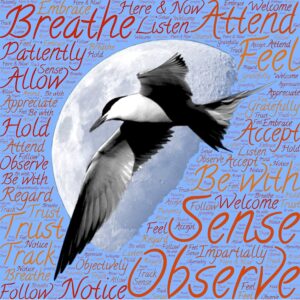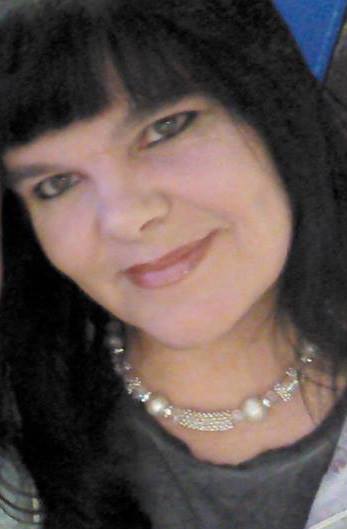 This is one of my favourite aspects of creative writing.
This is one of my favourite aspects of creative writing.
With a single wave of the writing wand, writing for therapy could save the world billions in treatment costs. That’s a significant brag akin to John Lennon saying he’s more famous than Jesus—and the guy from Talking Heads saying he’s more famous than John Lennon—come on, that was a clever statement.
And to add a disclaimer before I get yelled at for being irresponsible. I’m not for one second saying don’t get help for any mental health issues, or that professional therapy isn’t necessary—it is. But writing is an additional tool that you can use and adapt to benefit you.
I consulted the Great Oracle Google to determine how severe the mental health problem is. In the UK alone, the statistics are grave. Google can’t lie, right? If he says it’s true, you can bet your hat on it being correct. Admittedly, I’m still waiting for that alien Invasion he promised last week. Apparently, the men with six arms and plutonium blood are stuck in traffic on the M366660600000000.43, somewhere between Neptune and Uranus.
To be fair, the statistics are nowhere near as bad as I was expecting. According to Cancer Research and blasted over their funding advert on ITV, one in every two of us will suffer some form of cancer at some stage in our lives. How terrifying is that statistic? Google assures me that as of today, only one in four of us will be diagnosed with a mental health issue—maybe we don’t need this article after all. I could go for breakfast and come back when it’s one in two.
Presumably, these figures only record the people with a confirmed diagnosis. Aren’t we all poison-tipped with issues to varying levels?
Today we are under pressure, cars are faster, the world is faster, we’re pushed to overachieve, and there’s no time to breathe. The haves have enough money to buy themselves a yacht-load of mental health issues, and the have not’s don’t have the money to buy a half-hour go on a rowing boat in the park.
We all have problems.
So, where does writing come into it?
Creative writing can help you in so many ways. Let’s start with an exercise.
We can all do this, and it’s a great leveller and way of taking stock and putting things into perspective.
Write an ascending list of all the problems you have right at this minute.
Make number one the tiniest niggle—David has forgotten to put out the bins again.
Go from the minor irritations to the giant anvil waiting to fall on your head.
As you go down the list, be aware of what your body is telling you. Your heart rate is rising, the pressure is building, by the time you get to the three hundred pound electricity bill that you don’t have the funds to pay, you’re sweating.
It’s okay. We’re going to seal the problems away.
Get an envelope, put your list inside and lick it down hard. Put today’s date on the front—and a second date six months in the future.
In six months, open your envelope, and you will see that most of those problems will be gone. The bins are outside on this occasion and waiting for collection. The Electricity bill has been paid, or if it hasn’t, you’ve been proactive and arranged a payment plan to bring it down—it’s under control. The dispute with your neighbour is gone—they’ve moved away. Despite COVID19 lockdown, Charlie passed his exams, and the day after that horrible argument with your partner, they brought home flowers to say sorry.
The list of 48 items has dropped to three. There are always going to be problems that persist, and sod’s law dictates that they are likely to be the big ones. However, look at how many lines you’ve been able to score through. The crippling arthritis is still there, and your grandfather is still dying. The problems that haven’t gone away in six months will most likely be there in another six months—well, maybe not the dying grandfather.
These are the issues that you have to look in the eye and deal with. Maybe arthritis that had you in tears as you wrote your list isn’t as bad today. The new steroid injection that the doctor prescribed has helped significantly. You can construct a plan to clear more time to spend with granddad while he’s still here.
The last problem. Number one on the list. It’s still there. It hasn’t gone away. This is the one that you have to deal with. It’s you and that problem, head-on, and you are going to come out on top to make your mental health better.
Is it the issue itself? You’re depressed and can’t get out of bed in the mornings. Do something about it. It’s on your list. You need it to either drop in significance on your new list to show improvement or to score a line through it and have it go away. Call your doctor, your health professional, the crisis team or a helpline to get the ball rolling.
Sometimes it isn’t the problem itself but the underlying cause of it. You have an abusive partner. She hit you again last week—it’s escalating. Six months ago, it was the worst thing in your life—it still is. Today is the day you do something to make that problem disappear.
The only problem that you can’t do anything about is death. That’s the one final that’s going to come to us all—but even with that looming over your head, there are ways to make it an easier thing to cope with, and writing can help with that.
You will have an entire list of new problems that weren’t there six months ago— but the point of the list is to show you that everything in life is transient. Nothing stands still.
Write another list and put it to the bottom of your dated pile—with a date to be opened in six months.
I’m fortunate. I never have suicidal thoughts because I have a coping mechanism that sees me through the worst that life can throw. We all have bad days, and if I have one, I remember that nobody knows what’s coming. Something amazing might happen tomorrow—and if I’m dead, I’ll miss it.
Are There Other Ways that Writing Help me?
Write a journal. I honestly can’t stress enough how beneficial this is. Don’t buy a daft little diary with three inches of space to write up your day. Make a password-protected document on your computer and give yourself as much therapy time as you need.
That diary will be one of your best friends. Tell it everything. It doesn’t judge. When you’re angry—write it. Write, swear, metaphorically throw things, smash somebody’s face, and vomit out the words in type. Kill the person that’s done you wrong if you have to. It’s only words, but they are powerful. It’s your diary, your space, and there is nothing you can’t write.
The power of words
How powerful is that? To have the ultimate and perfect freedom to say whatever-the-hell you like. We spend every minute of every day holding back. It’s so ingrained and scored into us that we don’t even realise we’re doing it.
‘Do you like this dress?’
No, it’s goddammed awful and makes you look like a hippo
‘Yes, darling. You look lovely.’
And the big one.
‘Are you okay?’
‘Yes, I’m fine, thanks.’
And we smile and swallow the feelings. We push them so far down our gullet that we choke on them. Negative thoughts don’t taste good, and we can’t digest them. So they sit in the gut and rot.
Keeping a diary or journal is like talking to the better half of you. It’s a best friend and therapist. Write every horrible thought, every negative feeling and every bad thing that’s happened to you until you’ve purged. However, don’t forget to write all the good and fun stuff, too, and you might see that your life isn’t so bad after all.
 But I’m not a writer.
But I’m not a writer.
You don’t have to be a published author to be a writer. You’ve written three sentences?—You’re a writer.
If none of the above is for you—or even if it is. Just writing—nothing more than that—just writing anything is excellent therapy.
If you’re writing a children’s story about a toy duck that comes to life, you aren’t thinking about your depression. You can write about your troubles—or not.
Fiction is Escape
The world is closing in. You can’t breathe. You want to scream, but you can’t because you’re conditioned not to. The bad thoughts are in your head, and you can’t get them out.
This is the only hard part. We know nothing in life is free. There’s always a price. You have to get up off your backside and force yourself to open a document. It can be an ongoing piece, your journal, or something new. Write a poem, write a short story, a song, a screenplay, or a novel.
The hard part is fighting through the apathy to find the motivation to do it—and I promise you will benefit from it if you do. Your problems aren’t going to magically disappear—they’re still there. Your depression isn’t going to drift away on a rainbow cloud—it’s still there. But for those ten minutes, half an hour, or twelve hours straight, you can escape.
Think of writing as one of those fifteen storey iron fire escapes attached to New York City tenement blocks. When you’ve hit the ceiling, and you can’t take anymore. That fire escape is there. It’s just outside the window, and the more flights you descend, the closer to firm ground and solidity you get.
Writing about your life and your problems is therapy, but so is fiction. It can take you out of your existence for a while. It gives you that break and lets you breathe. You can be anybody, anything, anywhere and at any point in time. You can fly to the moon during your lunch break or turn into a fish to swim in the Great Barrier Reef. You can take time out and be somebody else for a time.
Reach Out to Other Writers
There are many places to share your writing, and I’d like to tell you about my favourite. ABCtales has been around for about twenty years. It’s more than a writing site. It’s a writing community. You can post your work and choose to either have it critiqued by other members—or not. The site is an excellent source of friendship and support. I can’t recommend it highly enough. The forums are lively, and you can chat about anything. They have regular online reading events. And, as the world returns to whatever normal was, I’m sure they will restart their evening events around the country.
You can write in any medium and any genre. Over time you will see your writing improve and evolve, and there is some fantastic stuff on there for you to lose yourself in.
Conclusion
If by writing this article, I’ve persuaded one person with problems affecting their mental health to take up the metaphorical pen and write something—then it’s been an article worth writing. I’m one of the lucky ones and don’t have enough on my plate to pull me down. But like everybody else, I have my problems and demons. I don’t have enough money, my life isn’t perfect, I worry about family, and I worry about worrying. Writing helps me to organise the thoughts in my head. As well as writing away hurt, pain or grievance, it shows me perspective and sometimes even how to view things from somebody else’s point of view.
In the words of the great Carol King, When this old world starts getting me down, and people are just too much for me to take …
I write.

Website
https://www.bestbookeditors.com/
https://www.bestbookeditors.com/latest-news/
https://www.bestbookeditors.com/books-by-katherine-black/
https://www.bestbookeditors.com/what-you-get-for-your-money/
https://www.bestbookeditors.com/book-formatting-and-typeset/
https://www.bestbookeditors.com/book-cover-design/
https://www.bestbookeditors.com/illustrations/
https://www.bestbookeditors.com/marketing-and-promotion/
https://www.bestbookeditors.com/author-publisher-logo-design/
https://www.bestbookeditors.com/book-trailers-promo-videos/
https://www.bestbookeditors.com/author-interviews/
https://www.bestbookeditors.com/shop/
https://www.bestbookeditors.com/request-a-quote/
Facebook page
https://www.facebook.com/Best-Book-Editors-102025145430197/










